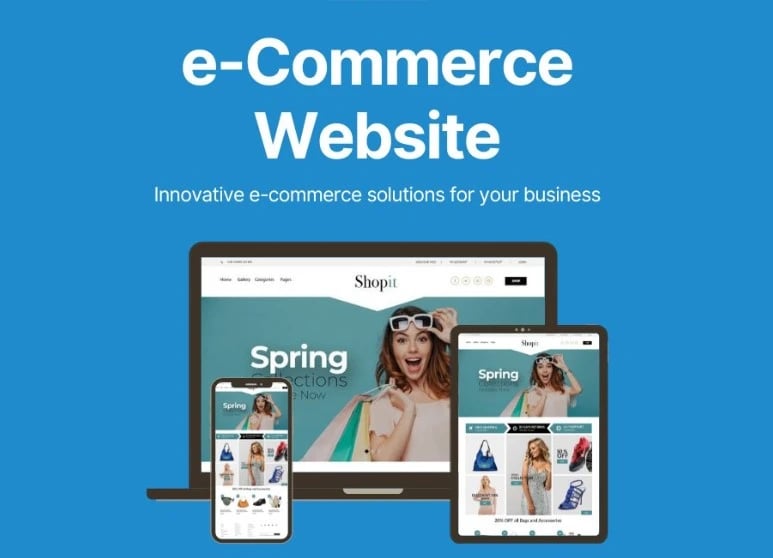
It’s crucial for your business to adopt sustainable marketing strategies that resonate with your customers and generate leads. By integrating eco-friendly practices into your website and social media presence, you can design a brand that reflects a commitment to sustainability. Mister Nguyen Agency emphasizes the importance of aligning your marketing tactics with a future-focused vision, helping you not only attract environmentally conscious consumers but also build long-lasting relationships. This blog post will guide you through practical strategies to elevate your brand while contributing positively to the planet.
Understanding Sustainable Marketing

To navigate the evolving landscape of consumer behavior and environmental responsibility, you must grasp the concept of sustainable marketing. This strategy not only focuses on the promotion of products and services but also emphasizes environmental stewardship and social responsibility. By innovatively engaging your audience through sustainable practices, your brand can align itself with the values that increasingly resonate with today’s eco-conscious customers.
Definition of Sustainable Marketing
An effective definition of sustainable marketing refers to the process of promoting products and services by considering their environmental and social impact. This approach integrates sustainable practices into your marketing efforts, which can encourage your audience to make eco-friendly choices that benefit both your business and the planet.
Importance of Sustainability in Business
Marketing in a sustainable manner requires you to acknowledge the growing demand for ethical products and practices. As consumers become more aware of environmental issues, your business can benefit from adopting sustainability as a core value. This commitment can not only enhance brand loyalty among existing customers but also attract new leads who prioritize environmentally-friendly options in their purchasing decisions.
The emphasis on sustainability in business communicates to your customers that you understand and care about the challenges facing our planet. By showcasing your commitment through initiatives on your website and social media, you can engage those who share similar values. This alignment helps you build a strong, future-focused brand, ensuring that your design and marketing strategies resonate with eco-conscious consumers, ultimately boosting not just your reputation, but also your bottom line.
1. Develop a sustainable website to attract eco-conscious customers.
2. Leverage social media for engaging sustainable brand storytelling.
3. Prioritize transparency to build trust with your business leads.
4. Design brand experiences that resonate with environmentally aware audiences.
5. Foster community engagement to enhance customer loyalty and retention.
6. Collaborate with Mister Nguyen Agency for expert sustainable strategies.
Key Principles of Sustainable Marketing
If you’re looking to adopt sustainable marketing strategies, focusing on key principles can significantly elevate your brand’s reputation and effectiveness. By prioritizing environmental stewardship, social responsibility, and transparency, you can create a deeper connection with your customers while generating leads for your business. Incorporating these values into your website and social media will not only enhance your brand image but also attract a loyal audience that shares your commitment to sustainability.
Environmental Stewardship
Across various industries, businesses are acknowledging their role in environmental stewardship. By implementing eco-friendly practices and promoting sustainable products, you demonstrate your commitment to protecting the planet. This approach not only appeals to eco-conscious customers but also enhances your brand’s credibility, reinforcing your position as a responsible business leader.
Social Responsibility
On the other hand, embracing social responsibility helps you build a brand that resonates with your audience. By actively participating in community initiatives and ethical labor practices, you position your business as a force for good, which can significantly enhance customer loyalty and brand trust.
Social responsibility goes beyond ethical sourcing; it involves ensuring that your business practices contribute positively to the communities you serve. Whether you participate in local charity events or promote diversity and inclusion within your organization, these efforts show your commitment to making a meaningful impact. Integrating social responsibility into your branding and marketing efforts will not only help you attract customers who appreciate your values but also generate leads through positive word-of-mouth. Positioning your brand as a socially responsible entity fosters long-term relationships with both clients and customers, reinforcing your mission to create a better world.
Developing a Sustainable Marketing Strategy

Once again, prioritizing sustainability in your marketing strategy can greatly impact your brand’s reputation and customer loyalty. By focusing on environmentally friendly practices and ethical considerations, you can resonate with your customers while driving business growth. Consider integrating sustainable elements into your website, social media posts, and business operations. Use these platforms to showcase your commitment to the environment, which can generate more leads and strengthen your brand identity with customers.
Assessing Current Practices
Beside evaluating your existing marketing strategies, it’s vital to identify areas for improvement in sustainability. Review your current practices to understand how they impact the environment and align with your brand values. Take a close look at your website and social media presence to ensure they convey your commitment to eco-friendly initiatives, helping you connect better with your audience while enhancing brand trust.
Setting Sustainable Goals
With clear sustainable goals, you can align your marketing efforts with your business’s overarching mission. Establishing specific, measurable objectives will encourage you to stay committed to eco-friendly practices and create accountability within your team. Consider setting targets related to reducing waste, implementing sustainable sourcing, or engaging your customers in eco-friendly habits, as these can enhance your website’s content and resonate with your audience.
To effectively set sustainable goals, you should evaluate your business’s current environmental footprint and explore actionable changes. This involves researching best practices and engaging with stakeholders, including your customers, to gather insights. Break down your objectives into achievable milestones, allowing you to track progress and adjust strategies accordingly. By setting and communicating these goals through your website and social media, you enable your customers to see your commitment to sustainability, encouraging their support and loyalty to your brand.
Engaging with Stakeholders

Keep in mind that engaging with your stakeholders is vital for building a sustainable brand. By fostering open communication channels and actively involving them in your initiatives, you can create a sense of community and loyalty around your business. This not only enhances your brand’s reputation but also helps you better understand the needs and values of your customers, ultimately driving your marketing strategies forward.
Collaborating with Consumers
The collaboration with consumers can significantly enhance your marketing efforts. By involving your customers in the co-creation process, you not only gain valuable insights into their preferences but also foster a sense of ownership among them. This engagement on your website and social media can lead to stronger brand loyalty, generating leads that are aligned with your business values.
Partnering with Organizations
Organizations play a vital role in sustainable marketing strategies. By partnering with like-minded entities, you expand your reach and amplify your impact. Collaborations with non-profits or other businesses committed to sustainability can enhance your credibility and expose your brand to new audiences. These partnerships not only support your marketing objectives but also contribute positively to your community.
Consumers are increasingly drawn to businesses that demonstrate a commitment to social responsibility. By partnering with organizations that share your values, you can attract customers who appreciate your dedication to sustainability. This alignment can also lead to creative joint marketing initiatives that leverage both brands’ strengths, thereby increasing visibility and generating quality leads. In today’s competitive landscape, aligning your business with reputable partners can enhance your brand identity and create meaningful connections with your target audience.
Measuring Success in Sustainable Marketing

Despite the challenges in quantifying the impact of sustainable marketing, it’s imperative for you to establish clear metrics to assess your efforts. These measurements will not only demonstrate the effectiveness of your initiatives but also reinforce your commitment to sustainability among customers. By leveraging analytics from your website, social media, and other platforms, you can track how sustainable practices resonate with your target audience and drive leads for your business.
Key Performance Indicators (KPIs)
By identifying specific Key Performance Indicators (KPIs), you can effectively measure the success of your sustainable marketing strategies. These indicators might include increased engagement rates on social media, customer feedback regarding eco-friendly practices, or even growth in sustainable product sales on your website. Utilizing these metrics allows you to adjust your approach over time, aligning your brand closely with customer expectations.
Reporting and Transparency
Success in sustainable marketing is also built upon reporting and transparency. Providing your customers with clear information about your sustainability practices can enhance trust and loyalty, ultimately leading to business growth.
Transparency in your sustainable marketing efforts allows you to showcase your genuine commitment to eco-friendly practices. By regularly updating customers through your website and social media, you can share progress reports, sustainability goals, and the impact of your initiatives. This openness not only strengthens your relationship with existing customers but also attracts new leads who prioritize sustainability in their purchasing decisions. Implementing focus on transparent reporting fosters a sense of accountability, ensuring that your brand stays aligned with the values of its audience.
Case Studies of Successful Sustainable Brands
Not all brands are created equal when it comes to sustainability. Here are some notable examples demonstrating effective sustainable marketing strategies:
- Patagonia: Achieved $1 billion in sales by promoting environmental responsibility and encouraging customers to buy used products.
- Unilever: Reduced CO2 emissions by 52% and reached €60 billion in sustainable brands sales.
- IKEA: Invested €1 billion in renewable energy, claiming 100% of its energy used comes from renewable sources.
- Starbucks: Committed to ethically sourced coffee, achieving 99% sourcing with the C.A.F.E. Practices as of 2022.
Innovative Approaches
Along with unique marketing tactics, successful brands use innovative approaches to engage their audience and enhance sustainability. For example, many leverage social media campaigns that highlight eco-friendly practices while directly involving customers, fostering community participation and loyalty.
Lessons Learned
Any effective sustainable marketing strategy provides valuable lessons that can elevate your business to new heights. Focus on authenticity, transparency, and community engagement to resonate with your customers.
Brands that have embraced sustainable practices have discovered the importance of aligning their values with those of their customers. This alignment not only builds trust but also deepens the loyalty of existing leads while attracting new ones. By showcasing environmental initiatives on your website and through social media, you can ensure that your business stands out as a leader in sustainability.
To wrap up
Hence, adopting sustainable marketing strategies empowers you to build a future-focused brand that resonates with your customers and attracts quality leads. By integrating eco-friendly practices into your business, enhancing your website, and leveraging social media, you can effectively position yourself as a responsible innovator in your industry. Partnering with organizations like Mister Nguyen Agency can further elevate your design brand, ensuring your marketing efforts align with sustainability goals while appealing to the conscious consumer. Embrace this opportunity to transform your business and foster lasting relationships with eco-aware customers.










